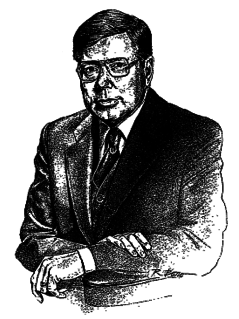
Generally Accepted Accounting Principles is the accounting standard adopted by the U.S. Securities and Exchange Commission (SEC). While the SEC previously stated that it intends to move from U.S. GAAP to the International Financial Reporting Standards (IFRS), the latter differ considerably from GAAP and progress has been slow and uncertain. More recently, the SEC has acknowledged that there is no longer a push to move more U.S companies to IFRS so the two sets of standards will "continue to coexist" for the foreseeable future.

Mark-to-market or fair value accounting refers to accounting for the "fair value" of an asset or liability based on the current market price, or the price for similar assets and liabilities, or based on another objectively assessed "fair" value. Fair value accounting has been a part of Generally Accepted Accounting Principles (GAAP) in the United States since the early 1990s, and is now regarded as the "gold standard" in some circles. Failure to use it is viewed as the cause of the Orange County Bankruptcy, even though its use is considered to be one of the reasons for the Enron scandal and the eventual bankruptcy of the company, as well as the closure of the accounting firm Arthur Andersen.

In accounting and in most Schools of economic thought, fair value is a rational and unbiased estimate of the potential market price of a good, service, or asset. It takes into account such objectivity factors as:

Arthur Levitt Jr. was the twenty-fifth and longest-serving Chairman of the United States Securities and Exchange Commission (SEC) from 1993 to 2001. Widely hailed as a champion of the individual investor, he has been criticized for not pushing for tougher accounting rules. Since May 2001 he has been employed as a senior adviser at the Carlyle Group. Levitt previously served as a policy advisor to Goldman Sachs and is a Director of Bloomberg LP, parent of Bloomberg News.
The expression " operating lease" is somewhat confusing as it has a different meaning based on the context that is under consideration. From a product characteristic stand point, this type of a lease, as distinguished from a finance lease, is one where the lessor takes residual risk. As such, the lease is non full payout. From an accounting stand point, this type of lease results in off balance sheet financing.
Charles H. Noski retired from Bank of America, September 1, 2012.
Sir David Philip Tweedie is the former chairman of the International Accounting Standards Board (2001-2011) and the ninetieth member of The Accounting Hall of Fame.
Katherine Schipper is an American accounting researcher and educator.

Charles Arthur Bowsher is an American businessman and politician. He served as the 6th Comptroller General of the United States from 1981 to 1996. During that period, he led the Government Accountability Office in addressing the savings and loan crisis and other major issues. He also served as the 5th Assistant Secretary of the Navy during the Lyndon B. Johnson administration from 1967 to 1971.
Donald James Kirk, an American accountant, was chair of the Financial Accounting Standards Board.
The Financial Accounting Foundation (FAF) is located in Norwalk, Connecticut, United States. It was organized in 1972 as a non-stock, Delaware Corporation. It is an independent organization in the private sector, operating with the goal of ensuring objectivity and integrity in financial reporting standards.

IAS 39: Financial Instruments: Recognition and Measurement is an international accounting standard for financial instruments released by the International Accounting Standards Board (IASB). It was replaced in 2014 by IFRS 9, which becomes effective in 2018.
In US accounting practices, the Accounting Standards Codification is the current single source of United States Generally Accepted Accounting Principles (GAAP). It is maintained by the Financial Accounting Standards Board (FASB).
Norwalk Agreement refers to a Memorandum of Understanding signed in September 2002 between the Financial Accounting Standards Board (FASB), the US standard setter, and the International Accounting Standards Board (IASB). The agreement is so called as it was reached in Norwalk.

The convergence of accounting standards refers to the goal of establishing a single set of accounting standards that will be used internationally. Convergence in some form has been taking place for several decades, and efforts today include projects that aim to reduce the differences between accounting standards.

IFRS 9 is an International Financial Reporting Standard (IFRS) promulgated by the International Accounting Standards Board (IASB). It addresses the accounting for financial instruments. It contains three main topics: classification and measurement of financial instruments, impairment of financial assets and hedge accounting. It will replace the earlier IFRS for financial instruments, IAS 39, when it becomes effective in 2018. However, early adoption is allowed.

IFRS 16 is an International Financial Reporting Standard (IFRS) promulgated by the International Accounting Standards Board (IASB) providing guidance on accounting for leases. IFRS 16 was issued in January 2016 and is effective for most companies that report under IFRS since 1 January 2019. Upon becoming effective, it replaced the earlier leasing standard, IAS 17.



